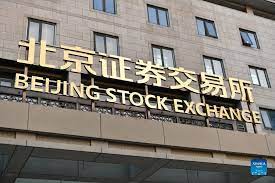The latest change to the $3.8 trillion mutual fund industry comes from China’s securities regulator, which has released draft guidelines aimed at reducing trading costs for mutual funds and addressing the conflict of interest between the securities trading and fund sales activities of brokerages.
The measures, according to the China Securities Regulatory Commission (CSRC), were made to better protect investors and control how fund managers distribute trading commissions.
The regulations, which the CSRC released for public comment on Friday, are the latest effort by authorities to boost investor confidence in the flagging stock market. The regulator had pushed mutual funds to lower investor charges and management fees five months prior.
According to analysts, brokerages that possess robust trading and research capabilities stand to gain profits from the new regulations.
The proposed regulations will lower trading commissions for both active and passive fund products. SWS Research projects a one-third reduction in overall commissions.
Furthermore, it is prohibited for fund managers to pay trading commissions for the purchase of third-party services like databases, financial terminals, or outside expert consulting.
Market players report that mutual funds frequently pay brokers extra commissions for optional services, which drives up trading expenses for fund investors.
The proposed regulations mandate that mutual fund sales representatives abstain from selecting a broker and dividing trading commissions.
In addition, the CSRC stated that fund managers ought to select brokerages that are “financially sound, well-behaved, and have strong capabilities in trading and research” since the proposed regulations would prohibit mutual fund companies from paying any one brokerage more than 15% of their total trading commissions.
The rules, in the words of Founder Securities, “will guide the brokerage business back to its root, back to research.”
In the next phase of the reform, Kaiyuan Securities anticipates that the CSRC will tighten regulation over fund distribution fees.
In a different move, the CSRC released proposed regulations to increase oversight of China’s $2.9 trillion in private funds, hoping to lower risk in an area vital to economic expansion and innovation.
The new guidelines require a qualified investor in a private equity or venture capital fund to contribute at least 3 million yuan ($418,731), triple the current minimum.

















